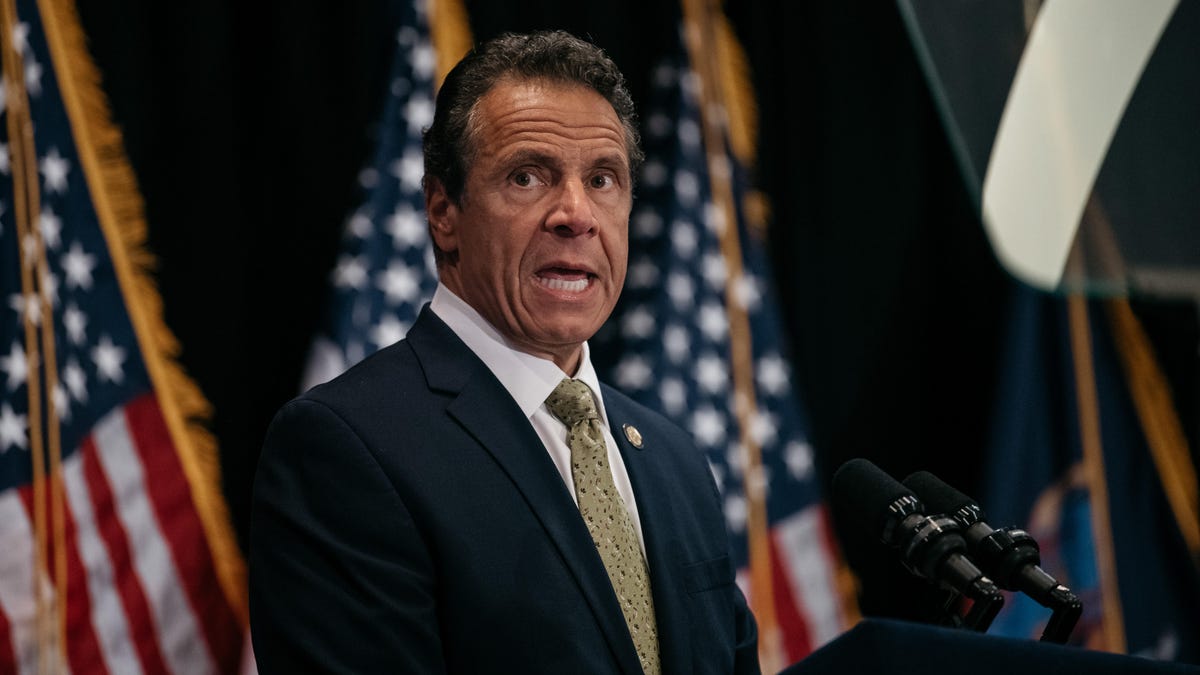New York governor promises net neutrality legislation in 2020
Andrew Cuomo is following the lead of California and promising a law to reinstate net neutrality protections in New York state.

New York Gov. Andrew Cuomo announced a proposal Thursday for a state law to reinstate net neutrality protections for New Yorkers.
New York Gov. Andrew Cuomo is joining states like California in proposing a law to ensure his state's internet users have access to a free and open internet. On Thursday, he called for a New York state net neutrality law as part of his 2020 legislative agenda.
Cuomo's plan comes two years after the Federal Communications Commission repealed Obama-era net neutrality protections, which ensured that broadband companies couldn't block or slow down access to the internet or favor their own content or services over a competitor's.
"A free and open internet is one of the great equalizers -- allowing every person the same access to information and helping protect freedom of speech," Cuomo said in a statement. He said his proposed legislation would ensure that "big corporations can't control what information we access or stymie smaller competitors."
Net neutrality is the idea that all traffic on the internet should be treated equally, regardless of whether you're checking Facebook, posting pictures to Instagram or streaming movies from Netflix or Amazon. It also means companies like AT&T, which bought Time Warner, or Comcast, which owns NBC Universal, can't favor their own content over a rival's.
Supporters of net neutrality say rules are necessary to ensure broadband companies aren't abusing their power as gatekeepers. But the current FCC and broadband companies say the old rules gave the FCC too much power and stifled broadband investment.
In 2017, the Republican-led FCC rolled back protections adopted just two years earlier. As part of its order, the FCC also forbade states from passing laws that imposed similar restrictions, saying a patchwork of regulations would create a de facto federal standard because internet service doesn't stop at state borders.
Internet company Mozilla, several public interest groups, and public safety officials in Santa Clara, California, sued. In October, a federal appeals court ruled that the FCC could roll back the rules. But in a victory for net neutrality supporters and states, the court also said the FCC couldn't prevent states from adopting their own protections.
Several states, including California, Vermont and Maine, have already passed net neutrality legislation.
After the federal rules were repealed in late 2017, Cuomo was among several governors who issued an executive order barring state agencies from signing contracts with internet service providers that don't practice net neutrality.
The law Cuomo is proposing would go beyond the executive order and apply to any internet service provider offering services in the state. Specifically, it would require internet service providers to disclose how they manage internet traffic and certify that they comply with New York's net neutrality rules. If companies break the rules, they could be fined by the state and also sued by consumers.
The proposed New York state law would also outlaw so-called "zero-rating" -- a practice that lets broadband companies exclude usage of certain apps and services from customers' monthly data allotments, while other apps and services are counted.
Fight for the Future, a grassroots organization that's been pushing for the reinstatement of net neutrality protections, said it's encouraged by the news that New York is drafting its own law. But it said that "with net neutrality the devil is in the details."
Big internet companies "employ an army of lawyers and lobbyists who will be pushing for loopholes or weaknesses they can exploit," said Evan Gree, deputy director for Fight for the Future. "In order to restore the protections that millions of people fought for in the 2015 Open Internet Order, state level legislation needs to include not only the bright line rules against blocking, throttling, and paid prioritization, but also the essential protections from the text of the order itself."

